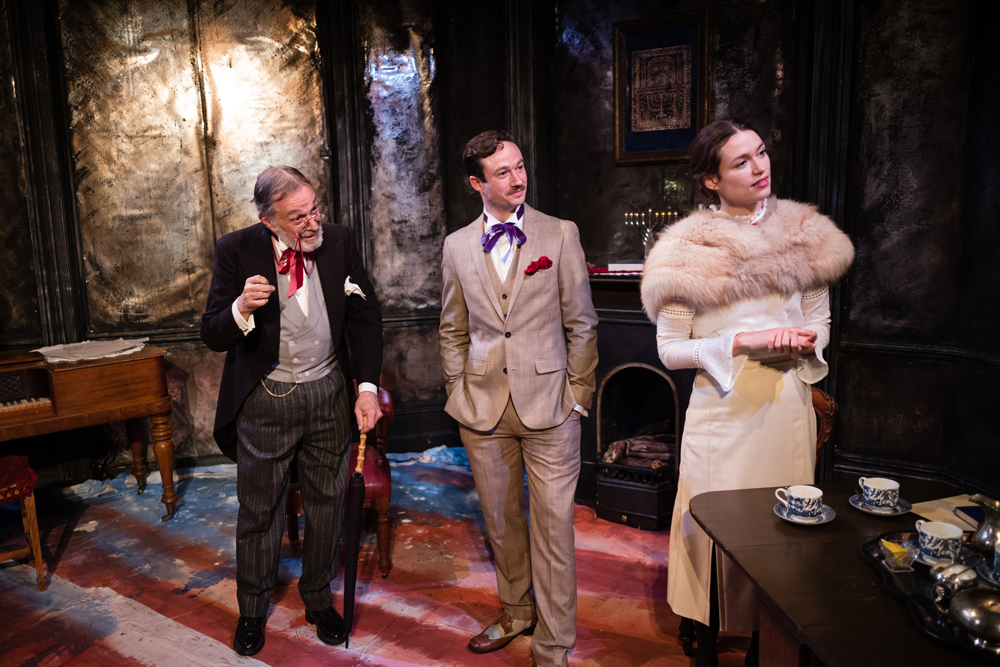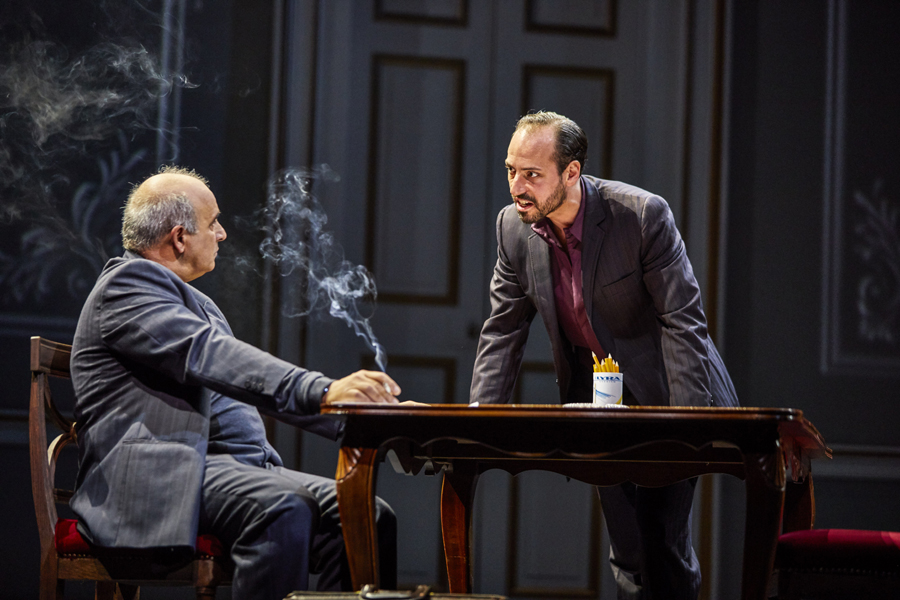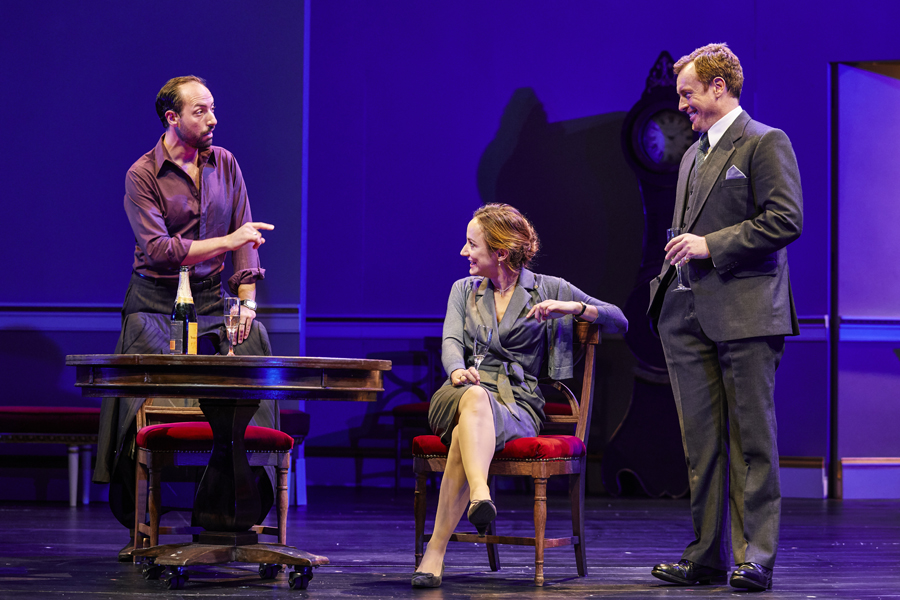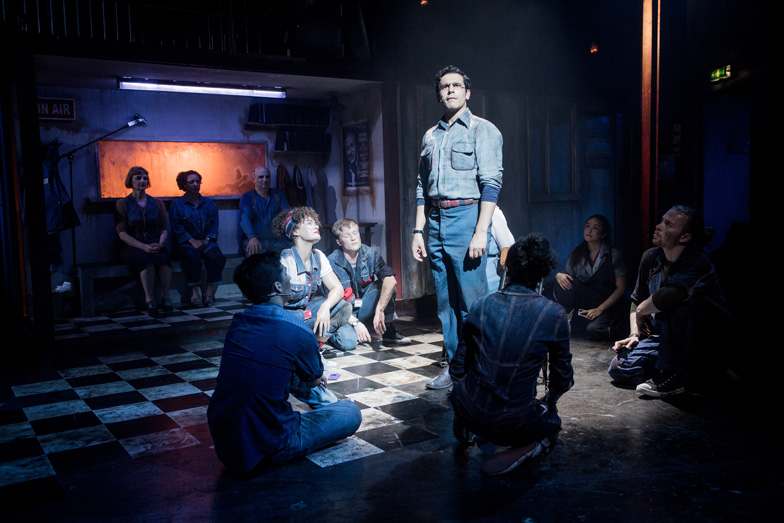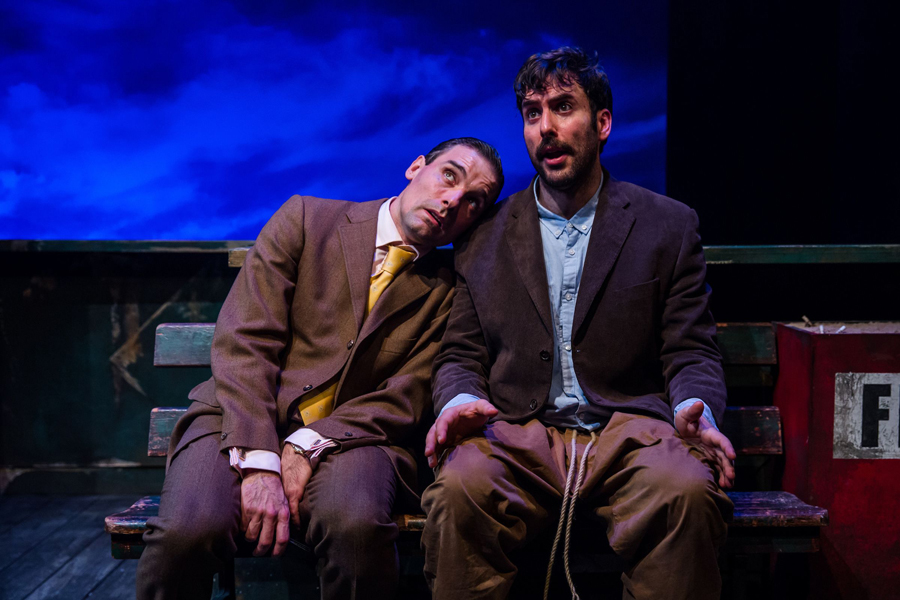 Israel Zangwill, a ferociously intelligent, passionate champion of multiculturalism, escaped poverty in London’s East End thanks in part to his education at the Jews' Free School, where he also subsequently taught for a time. He went on to become a writer, political thinker and activist. He was the first to use the phrase ‘the melting pot’ to describe what he also calls ‘God's crucible’ – America – in this play, endorsed enthusiastically and vocally by then US president Theodore Roosevelt at its 1908 premiere in New York. Now Bitter Pill Theatre produces the first UK revival of The Melting Pot since 1938.
Israel Zangwill, a ferociously intelligent, passionate champion of multiculturalism, escaped poverty in London’s East End thanks in part to his education at the Jews' Free School, where he also subsequently taught for a time. He went on to become a writer, political thinker and activist. He was the first to use the phrase ‘the melting pot’ to describe what he also calls ‘God's crucible’ – America – in this play, endorsed enthusiastically and vocally by then US president Theodore Roosevelt at its 1908 premiere in New York. Now Bitter Pill Theatre produces the first UK revival of The Melting Pot since 1938.
David Quixano, the visionary but damaged Jewish composer at the play’s heart, has survived the massacre of his family in the pogroms rife in the Ukraine, to rebuild his life in New York, taking refuge with his Uncle Mendel. Here too he must fight the prejudice and antisemitism displayed by almost everyone, from his uncle’s Irish housekeeper to the brash young millionaire playboy who is his rival in love for philanthropic socialite Vera Revendal. As the estranged daughter of a Jew-hating Ukrainian Baron, she is initially suspicious of Jews herself (‘That wonderful boy a Jew!?’ she exclaims when she finds out).
Vera calls him wonderful because he has played at a fundraising concert for her settlement project to help New York’s poorest. He’s in the throes of writing a symphony – a paean to the melting pot of America, where the prejudices of the past will disappear as the immigrant races mix to create a utopian multicultural future.
How David fights for his principles, his music and his future happiness is the meat of Zangwill’s drama, in director Max Elton’s sprightly, timely revival. It is of course the current rise of antisemitism and the mass movement of refugees from violence and poverty, coupled with prejudice against ‘the other’, that sadly make it so timely.
Steffan Cennydd is a shining-eyed, boyish David Quixano, delivering idealism bound to win Vera’s tender heart, but also convincingly haunted by terrifying flashbacks to the violence he endured. He’s well matched by Whoopie van Raam’s elegant, equally passionate Vera, an appealing young ‘Lady Bountiful’ with a strong sense of justice. Alexander Gatehouse relishes making Quincy Davenport the man you love to hate, a narcissistic, spoilt, insensitive, cheating and unashamedly racist millionaire used to getting his own way, he makes Zangwill seem topically prophetic. He patronises eminent musician Herr Pappelmeister (delightfully authentic Hayward B Morse), calling him ‘Poppy’, and enjoys matching vicious Baron Revendal’s hatred of ‘the Jew vermin’.
Peter Marinker gives intriguing contrasting portraits of Revendal and David’s fiercely Jewish Uncle Mendel – and narrates as Zangwill too. Ann Queensberry valiantly mumbles entirely in Yiddish as Mendel’s mother and Katrina McKeever enjoys housekeeper Kathleen’s journey from despising such Jewish eccentricities as keeping Shabbat, to enthusiastic apologist for her employers’ traditions. Composer Piers Sherwood Roberts knits the action together with tantalising ‘snatches’ from David’s ‘American Symphony’ in this inspiring symphony to multiculturalism.
By Judi Herman
Photos by Chris Tribble
The Melting Pot runs Until Tuesday 19 December. 7.30pm (Sun-Tue), 2pm (Tue only). £18, £16 concs. Finborough Theatre, SW10 9ED. 0844 847 1652. www.finboroughtheatre.co.uk
Click here to hear our interview with Peter Marinker on JR OutLoud.


